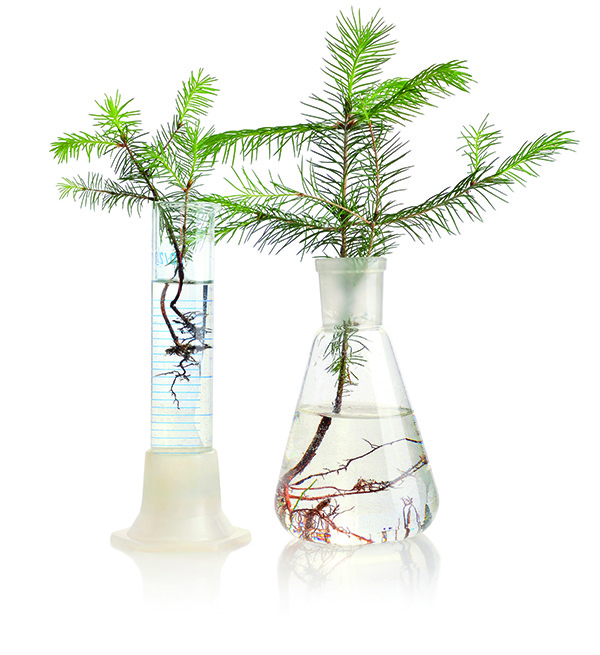The National Tree Improvement Strategy (NTIS) is a relatively new organisation designed to bring together all parties interested in the genetic quality of trees planted in the UK. Different organisations are interested in tree genetics for different reasons. Some may be wanting to ensure that the trees planted in a given area are locally native. Others may want to plant native species but not necessary the most local; just the most productive. Others still may want to maximise genetic gain by planting exotic species with a relatively narrow genetic base. All are concerned with conservation of rare genes of possible future value. Tree nurseries want to help by making sure they are raising the most appropriate planting stock and saw millers are concerned that whatever is produced must satisfy the demands of the construction industry. Meanwhile research organisations help solve problems as they arise and drive forward the quality of the planting stock.
Forestry is highly connected across the various sectors. Each sector needs to understand the objectives of the other; none should operate in isolation. The genetic quality of the planting stock is crucial to the success of a forestry operation be that a Sitka spruce up-land plantation on a 35-year rotation, or a 120-year rotation of oak in the Forest of Dean. If inappropriate stock is planted that is not adapted to that part of the world, is not resistant to diseases and climate extremes the trees are likely to encounter, or the end-timber is not fit for purpose, then a lot of time and money has been wasted.


NTIS brings all the various forestry sectors together so they fully understand the importance of genetics in trees and selection of the best planting stock to satisfy their individual organisational objectives. The NTIS wants to identify research problems and bring interested parties together to solve those problems with adequate funding. It also wants to make sure that as much as possible the improved planting stock is available to everybody, and it intends to communicate all this information as widely as it can across the sectors.
NTIS is a collaboration and mixture of many organisations; one glance down the list of Steering Group members will confirm that! It is through this collaboration with stakeholders across the forestry, ecology and academic sectors that NTIS aims to identify all the major issues in tree improvement and genetic conservation. By combining the collective knowledge, insight and experience of its many partners, NTIS has produced a comprehensive list of objectives relating to tree breeding and forest genetic conservation in Britain, as well as the various organisations involved in a particular area. This list is referred to as ‘Strategic Priorities’.
